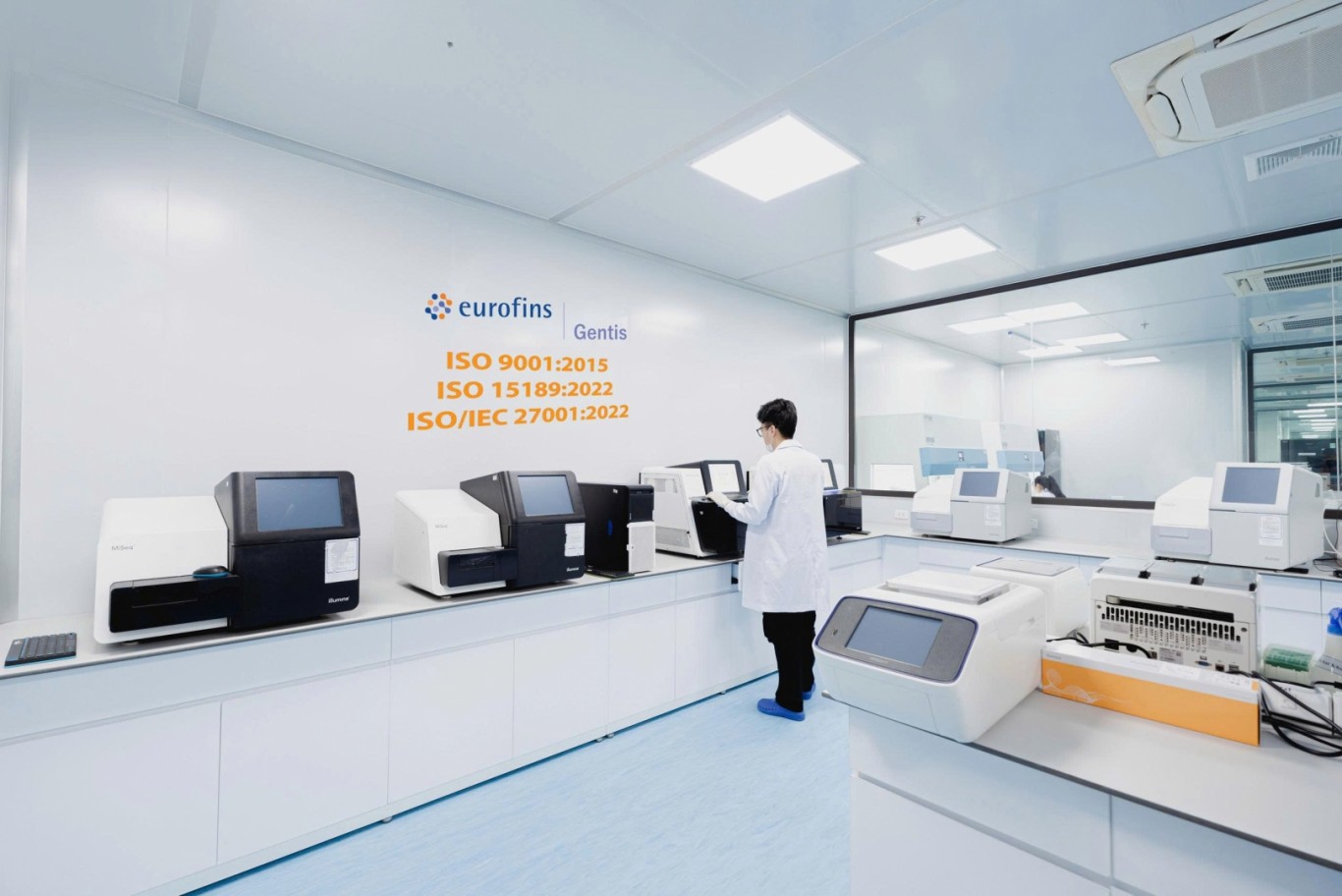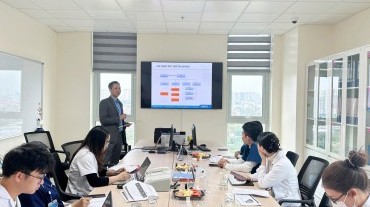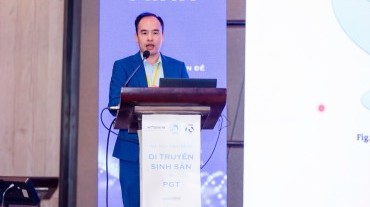With advances in technology and testing methods, PGT continues to be developed and clinically validated, thereby improving the success rates of assisted reproductive treatments. This is especially beneficial for parents with genetic diseases, allowing them to have healthy children free from genetic disorders.
According to global publications and studies, using next-generation sequencing (NGS) technology, current PGT tests can screen for and detect abnormalities in chromosome number (aneuploidy) across 23 pairs of chromosomes, known as PGT-A, structural chromosome abnormalities (addition/deletion/duplication), known as PGT-SR, single-gene disorders, known as PGT-M, and recently, some reports have emerged regarding the development of PGT for polygenic diseases (PGT-P). As the use and complexity of preimplantation genetic testing (PGT) increases, genetic counseling has become an essential part of modern medicine. GENTIS successfully organized a scientific seminar on "Genetic Counseling and PGT Testing: From International Guidelines to Clinical Practice in Vietnam."
At the seminar, Specialist Doctor Level 1 Nguyen Van Thong,, Head of the Department of Medical Genetics at Hung Vuong Hospital, explained: "Genetic counseling is a process that provides information, support, and guidance related to genetics and genetic risk factors for individuals or families. It helps assess the likelihood of inheriting genetic diseases based on family history or genetic test results. Additionally, it provides knowledge about genetic-related diseases or conditions, such as cancer, genetic disorders, or congenital abnormalities.
Furthermore, doctors will counsel on the benefits, limitations, and risks of genetic tests to help patients make informed decisions. Once the genetic test results are available, the doctor will explain the results and their implications for personal and family health. In addition, genetic counseling also provides psychological support to help patients and families deal with worries or emotions related to the results or genetic risks. Moreover, doctors will discuss follow-up, treatment, or prevention measures based on genetic risks."
Specialist Doctor Level 1 Nguyen Van Thong, also emphasized the importance of collaboration among genetic specialists, infertility doctors, embryologists, and healthcare workers to ensure the highest efficacy in the testing process. He also shared the role of PGT in supporting couples to have healthy children by screening and detecting genetic abnormalities. Technological advancements in PGT-A/SR and PGT-M not only increase the chances of successful pregnancies but also reduce the risks of miscarriage and serious genetic diseases in the fetus.
From a clinical perspective, Dr. Le Thi Minh Chau, Head of the Infertility Department at Tu Du Hospital, shared that over the past thirty years, there have been rapid advancements in genetic testing and assisted reproductive technology, reshaping the PGT testing process. The development of whole genome amplification (WGA) tools, combined with optimized hormonal stimulation protocols and more effective cryopreservation methods, has led to more accurate diagnoses and improved clinical outcomes. Furthermore, the shift from day 3 to day 5 or early day 6 embryo biopsy has altered the timeline for a typical PGT clinical process.
Although PGT helps reduce pregnancy terminations, in cases such as families with single-gene disorders, PGT is a relevant option for preimplantation genetic diagnosis. However, PGT remains a solution that requires discussion and consensus guidelines. Some of the complexities in the IVF process are especially relevant for couples without fertility issues, including the risk of diagnostic errors, potential embryo damage from invasive procedures, and ethical concerns. Therefore, the decision to undergo PGT is complex and always involves a stressful decision-making process.
Sharing her experience with PGT testing in Europe, Prof. Dr. Francesca Spinella, Senior Medical Information Specialist at Eurofins Genoma Group and Senior Consultant at GENTIS, explained: "Preimplantation Genetic Testing is a growing trend in Europe and globally. PGT analyzes genetic abnormalities (gene level and chromosomal abnormalities) in embryos before transferring them into the mother's uterus, helping to select embryos with a high implantation potential and a good chance of producing a healthy baby. However, in Europe, only reputable tests such as PGT-A, PGT-SR, and PGT-M are accepted and widely monitored by the ESHRE PGT Consortium."
The ESHRE PGT Consortium, founded in 1997, is responsible for collecting data on the accuracy, reliability, efficacy, and safety of PGT-A, PGT-M, and PGT-SR. It also establishes minimum standards and promotes best practice guidelines. Additionally, the Consortium facilitates the exchange of ideas and perspectives among members.
At the seminar, Prof. Dr. Francesca Spinella also introduced new PGT tests being developed at Eurofins Genoma Group. She noted that Eurofins Genoma Group is researching and developing a new PGT testing package called PGT Next. PGT Next, in addition to detecting chromosomal abnormalities such as PGT-A/SR, can also detect aneuploidy, identify euploid embryos without abnormalities, even in cases of embryo morphological abnormalities.
Through the seminar "Genetic Counseling and PGT Testing: From International Guidelines to Clinical Practice in Vietnam," GENTIS hopes that attendees have gained new information and knowledge about preimplantation genetic testing (PGT) and a clearer understanding of the value and applicability of PGT tests in assisted reproduction. This will contribute to improving clinical outcomes, supporting patients in making informed decisions, and increasing the chances of successful pregnancies and healthy babies.














